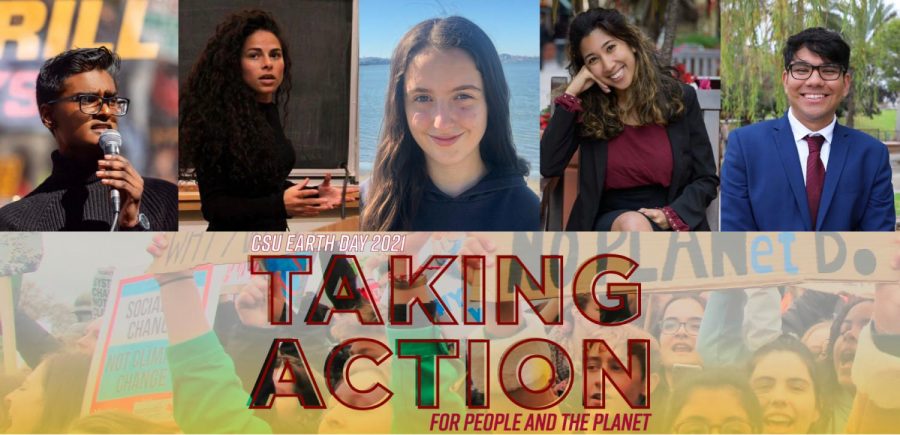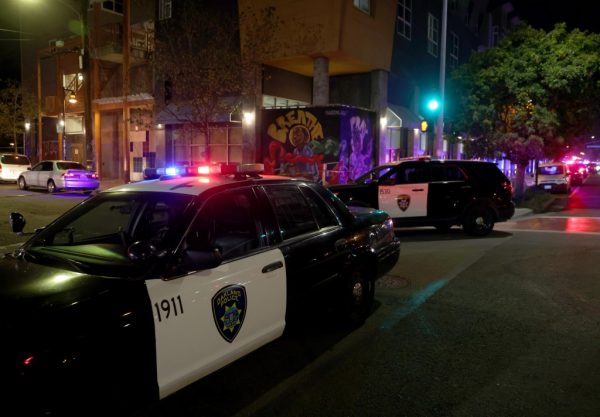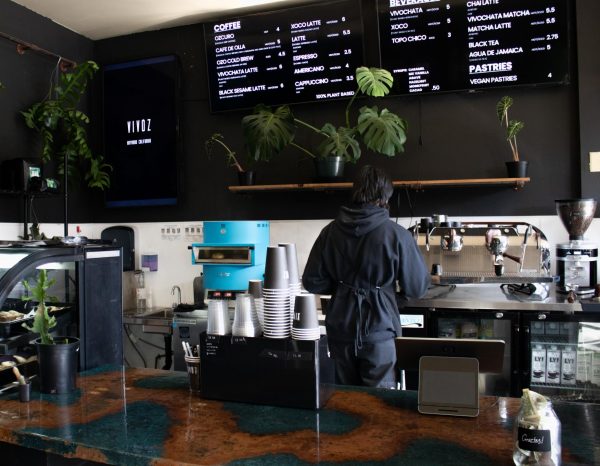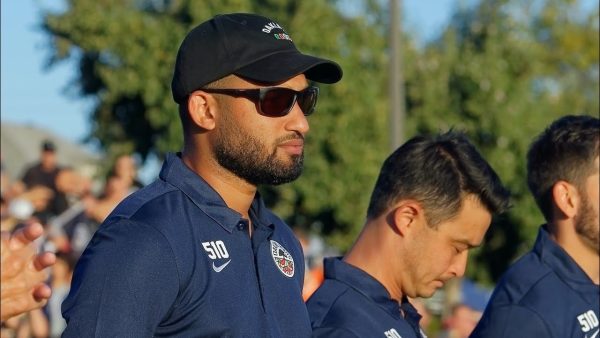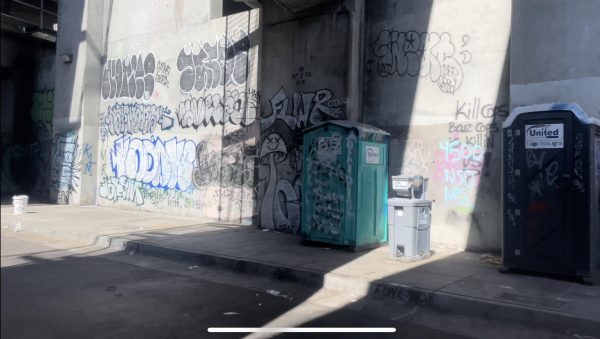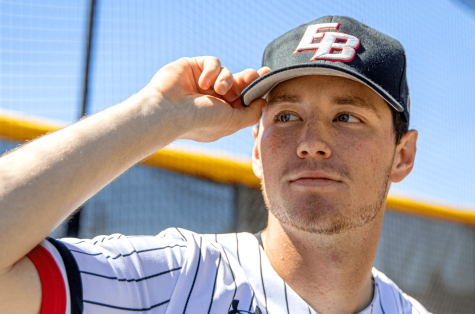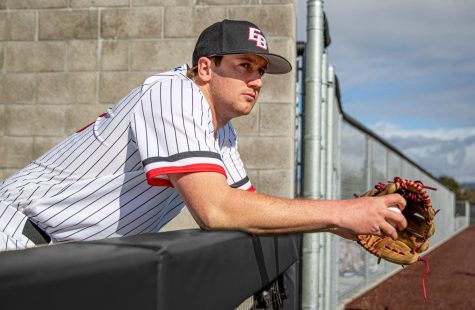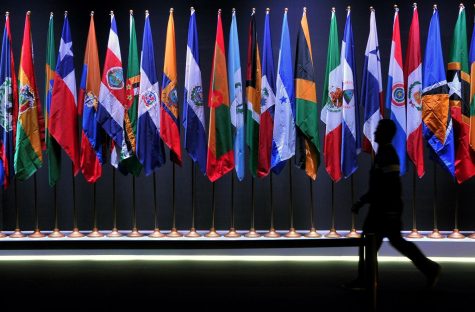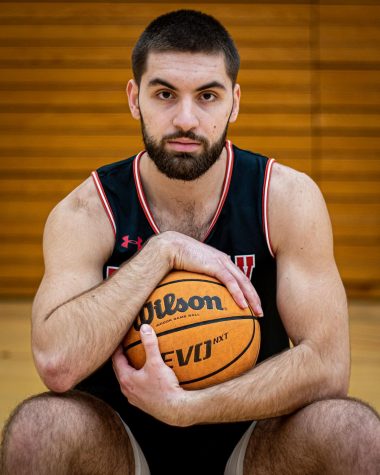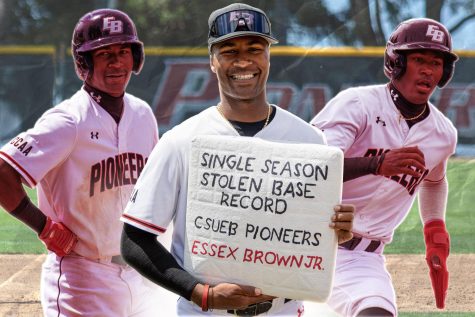You Don’t Have to Be Vegan to Be An Environmental Activist
April 23, 2021
A Recap of: Taking Action for the People and the Planet
“First and foremost, environmentalism is not about saving the planet… we are what’s at stake here,” Panelist Sage Lenier said.
From veganism to bamboo straws, topics alike were discussed at this year’s California State University system-wide webinar in honor of Earth Day. Sustainability leaders across the CSU board hosted its second system-wide webinar to discuss the climate justice movement among an elite panel of four surprisingly young environmental leaders.
Among the panel were undergraduate student Kevin J. Patel, Founder and Executive Director of “OneUpAction International,”
Sage Lenier, a 22-year-old educator at “Zero Waste USA,” Kristy Drutman, an environmentalist and host of the podcast and media series “Brown Girl Green,” and the youngest panelist Myroslava Fisun, a high school student and climate activist serving as the Sunrise Movement Bay Area Hub Coordinator.
The webinar, centered around awareness of the intersections between environmental issues and social justice issues, brought a fresh perspective to its attendees.
Leiner described her initial undergraduate experience in environmentalism as sitting in a lecture hall while older white men delved deeper into the awful state of our planet rather than discuss solutions. “We were talking about food justice, and the professors are talking about how they grow their own vegetables, and I thought, me and everyone in this room is on food stamps,” Leiner recalled.
With increasing anger over the stale environment, Leiner developed her own course. Under the University of California, Berkeley’s program that allowed students to teach their peers, she was able to do just that. Her course, “Solutions for a Sustainable & Just Future,” has now been taught to over 800 students.
With a deep stance in environmental solutions, she says, “A lot of the individual actions we advertise as good for the planet such as going plastic-free, solar panels and bamboo straws are not necessarily good for the planet, they might be less bad, but there isn’t enough acknowledgment yet that the only thing you can do that’s actually good for the planet is literally get your hands in the dirt with ecosystem restoration or generative agriculture.”
The panelists, each directly affected by environmental injustices in their own communities, expressed the urgency for change within the younger generation. Born with a farming background under migrant parents from India, Patel had an immense appreciation for agriculture and equal accessibility to food.
Growing up in South Central Los Angeles, he described his hometown as a “food desert” in which affluent communities had access to healthier foods, like Non-GMO and vegan options, while less affluent communities only had access to fast food with no grocery stores or more nutritious options.
“As a kid, a lot of my peers didn’t even know where food came from; they thought it came from the grocery store or restaurants; it was mind-boggling to hear someone say they didn’t know you can grow your own food,” Patel said.
Throughout the webinar, Drutman and Fisun emphasized the importance of youth in environmental change. Both Fisun and Drutman describe themselves as “bridgebuilders” who aim to close the gap between younger generations and the environmentalist movement.
As a digital content creator, Drutman is passionate about reaching younger audiences in more digestible forms such as social media. She wants to shift away from the mainstream environmental movement. “It’s not highlighting the voices and experiences of black, brown, and indigenous people, and a climate-just future needs to center the front line experiences of BIPOC communities,” Drutman said.
The webinar offered a modern perspective on the ever-changing discussion of sustainability, climate, and environmental injustices. In contrast to the outdated environmental solutions, all four-panel members successfully outlined ways in which college students can actively become involved by first looking inward at the food, climate, and sustainability injustices in their own communities.
“For me, climate activism or advocacy is not a hobby, nor is it a passion, nor is it a choice; it’s a survival tool for my community,” Patel said.




